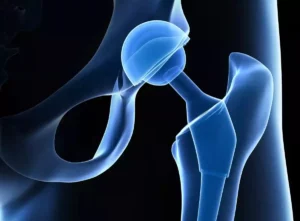If you are a fan of any one of the numerous legal dramas playing out on television throughout the week, the chances are good that you have probably encountered the terms “burden of proof” and “standard of proof”. Like many elements of the legal process, these particular phrases are often discussed and, unfortunately, used in the incorrect context. That being said, drawing a clear distinction between these two concepts is relatively easily to do.
For starters, it should be made clear that both the burden of proof and standard of proof are deeply interconnected. In fact, without a burden of proof, the need for a standard of proof would not exist!
Defining the Burden of Proof
When a civil case moves to trial, the burden of proof is initially assigned to the plaintiff, the individual who has initiated the suit against the defendant. According to current legal guidelines with respect to civil cases, the plaintiff and their legal team must provide “a preponderance of evidence” which demonstrates to the jury / judge that their claims are valid.
For many individuals, the phrase “preponderance of evidence” is probably less familiar than “beyond a reasonable doubt”. That being said, each represents a specific extent to which evidence must support the claims of either the plaintiff (in a civil trial) or the prosecution (in a criminal trial). These two evidentiary standards are commonly referred to as a “Standard of Proof”.
Exploring the Standard of Proof
In both civil and criminal trials, the defendant is assumed innocent until proven guilty. This forms the basis of both the burden of proof and standard of proof. When a plaintiff initiates a civil suit against the defendant, they do so with the knowledge that the evidence they submit for consideration must establish guilt based upon a “preponderance of evidence”. In more practical terms, this implies that the evidence they have gathered proves that there is more than a 50% chance that the defendant is guilty of the claims being lodged against them.
The evidence submitted by the plaintiff can take a variety of forms, ranging from eyewitness testimony to expert opinions, cost assessments, statements from law enforcement and more. Ultimately, the specific type of evidence that will be required to “win” a case will depend on the nature of the claims being made by the plaintiff.
A Shifting Burden
Although the burden of proof is initially assigned to the plaintiff, it can shift between teams at various points throughout the trial based on the specific dynamics of the case. An excellent example of this is personal injury cases. At the onset of the trial, it is the responsibility of the plaintiff to prove that the defendant’s actions (or lack of action) are responsible for the injuries incurred. After presenting their evidence, the burden of proof shifts to the defendant, who has a vested interest in either refuting the claims made by the plaintiff using evidence or arguing that the evidence provided by the plaintiff does not successfully depict the true content of the situation at hand. It is in the best interests of both parties not to be the last one holding the burden of proof, as this may act a sign of weakness for the jury.
Whether you are involved in a personal injury case or any other form of civil case, it is your best interest to have an experienced legal team at your side who can help you navigate the dynamics of the trial process.
Civil Trial Attorneys in the Coachella Valley
Our firm has been handling personal injury cases throughout the California Low Desert and High Desert communities for over 30 years. With a 95% success rate, the California personal injury attorneys at Walter Clark Legal Group will fight to hold those responsible for your loss accountable and win compensation to cover medical bills, lost wages, and pain and suffering. If you have been injured in an accident and want to discuss your legal options, contact us today for a free consultation with an experienced personal injury lawyer. We have offices in Indio, Rancho Mirage, Victorville, and Yucca Valley and represent clients through the entire California Low Desert and High Desert communities.
DISCLAIMER: The Walter Clark Legal Group blog is intended for general information purposes only and is not intended as legal or medical advice. References to laws are based on general legal practices and vary by location. Information reported comes from secondary news sources. We do handle these types of cases, but whether or not the individuals and/or loved ones involved in these accidents choose to be represented by a law firm is a personal choice we respect. Should you find any of the information incorrect, we welcome you to contact us with corrections.
- What To Do If You Have Been Injured At A Concert In California? Mar 27,2024
- Walter Clark Legal Group Reimburses Thanksgiving Ride Fares Nov 14,2023
- Walter Clark Legal Group Donates Backpacks to Booker T. Washington Elementary School Aug 22,2023
- Walter Clark Legal Group Donates Backpacks to Underserved Students Aug 22,2023
- Walter Clark Legal Group Reimburses Labor Day Ride Fares Aug 21,2023
- 2023 Safe Ride Home Program Jun 21,2023





















